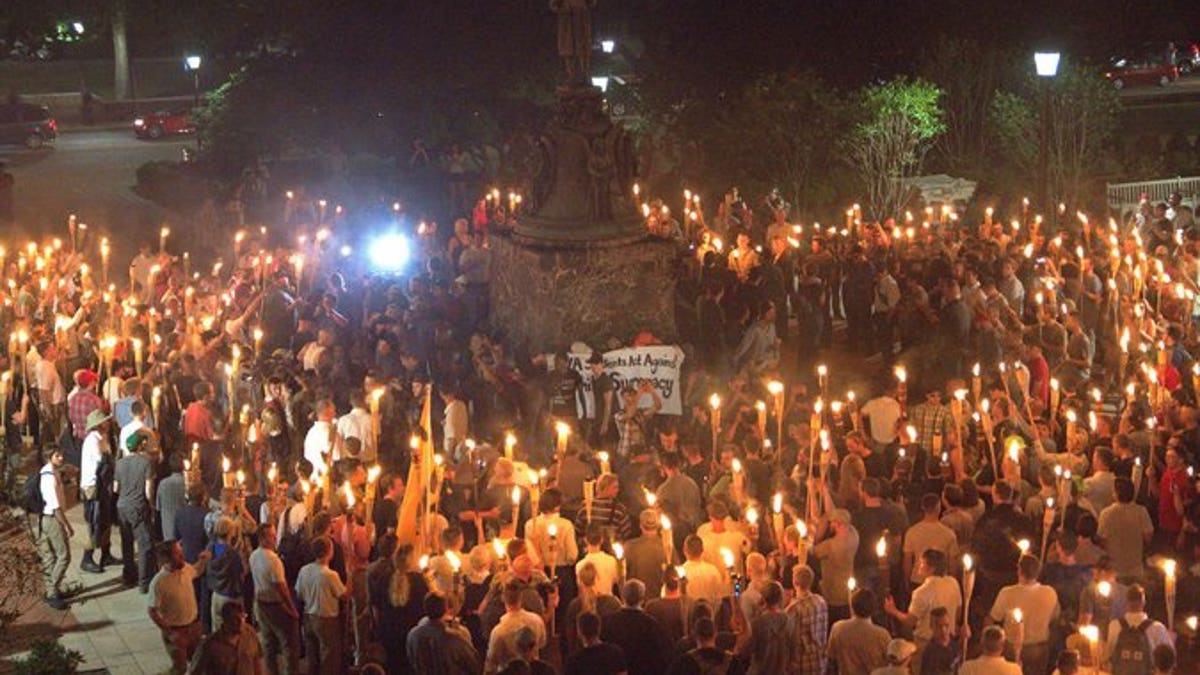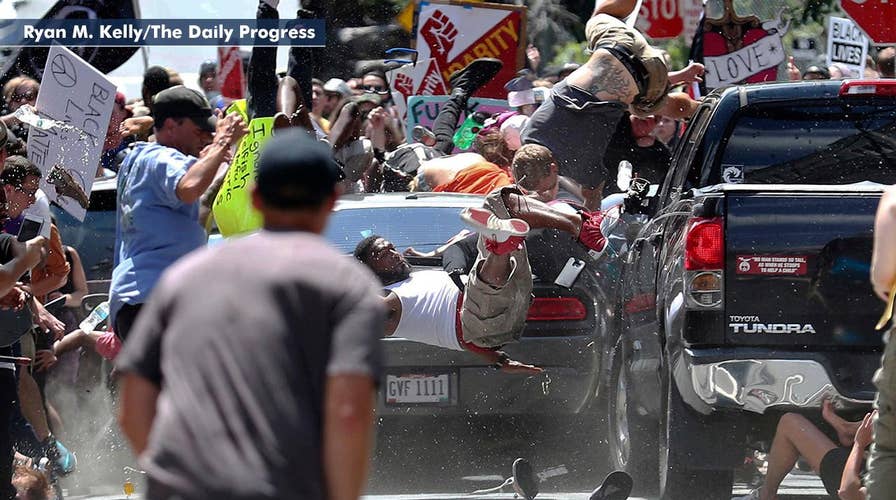Hate-crime charges filed in Charlottesville car attack
Charlottesville car attack suspect facing more than two-dozen federal hate-crime charges.
The identities of the neo-Nazis and white supremacists who planned the 2017 Unite the Right rally in Charlottesville may be revealed thanks to a judge’s ruling on Monday in a federal lawsuit brought by victims.
The event last August, where white nationalists demonstrated in favor of maintaining Confederate statues in the city and clashed with anti-racist protesters, led to the death of counter-protester Heather Heyer when she was struck by a car driven by James Alex Fields.
According to Gizmodo, attorneys for the plaintiffs in the case filed a subpoena earlier this year asking the chat site Discord to turn over information including chat logs and the identities of users in a Unite the Right planning server. Their goal was to prove that organizers of the rally intended to cause as much mayhem as possible and were not—as they have claimed—victims of counter-protesters and police officers.
DARPA PROTOTYPES BREAKTHROUGH CYBERATTACK HUNTING TECHNOLOGY
U.S. Chief Magistrate Judge Joseph C. Spero, who is overseeing the case, ruled that the plaintiffs have a right to know the account information of over 30 users on the server. That information should shed light on whether anyone who used the chat service ended up attending the rally and could lend credence to the plaintiffs’ claims of malicious intent.

Neo-Nazi, white supremacist and white nationalist groups are seen in Charlottesville, Va., surrounding a small group of counter-protesters, Aug. 11, 2017. (Reuters)
The judge also ruled that the Stored Communications Act prevents him from releasing the actual contents of the messages to the plaintiffs, the tech site reports.
The Discord server was used to spread racist propaganda and discuss everything from what kinds of improvised weaponry participants should bring to whether they could secure “fedora shaped helmets,” reports The Washington Post.
Although Spero gave the plaintiffs access to the account data, he said it must be restricted to only a few people — meaning it will not be seen by the general public, but only by attorneys and court personnel.
Marc Rendazza, an attorney representing one of the Discord users, told the Post that he is still considering an appeal of the ruling.
“The court’s decision to limit disclosure to these select few groups strikes me as a recognition of the potential First Amendment harms that would result if the information was publicly disclosed,” Electronic Frontier Foundation staffer Aaron Mackey told Wired. “The court recognized that even at this highly charged and emotional moment, the First Amendment limits when private litigants can unmask anonymous online speakers.”
FACEBOOK NIXES FARRAKHAN VIDEO OPPOSING INTERRACIAL MARRIAGE AFTER OUTCRY
But Mackey cautioned that the same tools used to unmask white supremacists could be used against “historically powerless individuals and groups to intimidate, harass, and silence them.”
In a statement to Gizmodo, Discord said it has taken action to remove servers and users promoting harassment and violence, but it declined to comment on the ongoing litigation.
The Wall Street Journal reports that infighting, lawsuits and a social-media crackdown are hampering white nationalist and other right-wing groups, while others have been blocked or banned by social media companies and financial services companies.









































